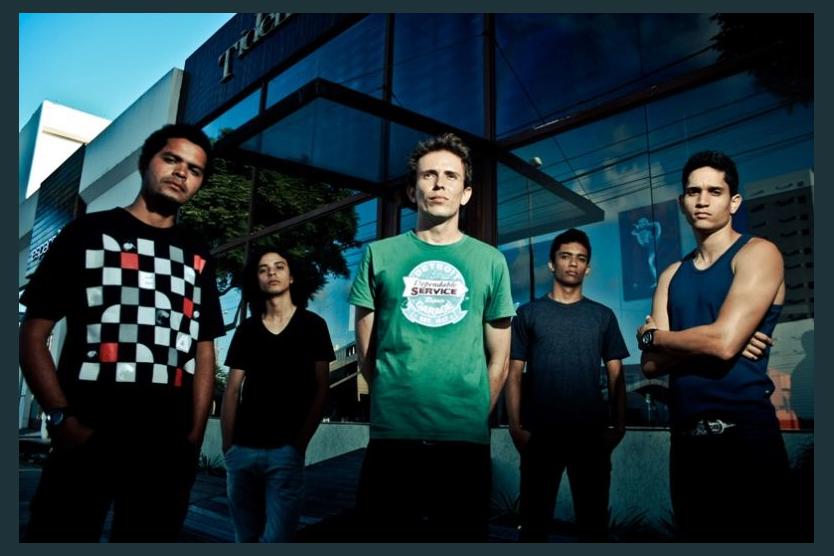 O Alvo
O Alvo
O Alvo: The Audacious Ballad of a Controversial Rock Band
Amidst the turbulent waves of the Brazilian underground rock scene, emerged O Alvo, a band that dared to challenge societal norms and ignite passionate debates with their audacious lyrics. Their anthem, "Eu Sei" ("I Know"), became a lightning rod for controversy and propelled them to the forefront of the alternative music landscape.
Origins and Challenges
Formed in the late 1980s in the industrial city of São Paulo, O Alvo comprised a group of fiercely independent musicians: vocalist and songwriter Guilherme Arantes, guitarists Sérgio Dias and Ricardo Pederneiras, bassist Fernando Lupi, and drummer Marcos Valadão. Their early years were marcado by relentless gigging, financial struggles, and persistent censorship by the government.
Undeterred, O Alvo persisted, crafting music that defied the prevailing trends of the era. Their raw, introspective lyrics explored themes of alienation, social injustice, and the complexities of human nature. Their sound was a potent blend of post-punk, alternative rock, and experimental elements.
Discography and Controversies
O Alvo's debut album, "Cidades Fantasmas" ("Ghost Towns"), released in 1991, earned critical acclaim for its visceral intensity and thought-provoking lyrics. However, it was the release of their sophomore album, "Terra Incognita" ("Unknown Territory") in 1993, that truly ignited the controversy.
The album's lead single, "Eu Sei," became an instant sensation. Its lyrics, which depicted the harsh realities of urban life, police brutality, and social inequality, resonated deeply with Brazil's marginalized youth. However, the song also faced widespread criticism from conservative groups who accused the band of promoting violence and disrespecting law enforcement.
Members and Collaborations
Throughout their career, O Alvo underwent several lineup changes. Arantes remained the band's constant presence, while Dias and Pederneiras were replaced by guitarists André Abujamra and Luiz Gustavo in the mid-1990s. Lupi and Valadão remained steadfast members until the band's dissolution in 2002.
O Alvo also collaborated with numerous notable artists, including singer-songwriter Itamar Assumpção, rapper MV Bill, and guitarist B.B. King. These collaborations further expanded their musical horizons and solidified their status as one of Brazil's most innovative and influential rock bands.
Legacy and Impact
Despite their eventual disbandment, O Alvo's legacy lives on as a testament to the power of music to challenge authority, express dissent, and inspire change. Their songs continue to resonate with Brazilian youth who struggle against social injustices and seek authentic voices that speak to their experiences.
O Alvo's controversial journey serves as a reminder that art has the potential to provoke thought, ignite debate, and ultimately, shape the course of society. Their music remains a vital chapter in the history of Brazilian rock and continues to inspire generations of musicians and fans alike.
Amidst the turbulent waves of the Brazilian underground rock scene, emerged O Alvo, a band that dared to challenge societal norms and ignite passionate debates with their audacious lyrics. Their anthem, "Eu Sei" ("I Know"), became a lightning rod for controversy and propelled them to the forefront of the alternative music landscape.
Origins and Challenges
Formed in the late 1980s in the industrial city of São Paulo, O Alvo comprised a group of fiercely independent musicians: vocalist and songwriter Guilherme Arantes, guitarists Sérgio Dias and Ricardo Pederneiras, bassist Fernando Lupi, and drummer Marcos Valadão. Their early years were marcado by relentless gigging, financial struggles, and persistent censorship by the government.
Undeterred, O Alvo persisted, crafting music that defied the prevailing trends of the era. Their raw, introspective lyrics explored themes of alienation, social injustice, and the complexities of human nature. Their sound was a potent blend of post-punk, alternative rock, and experimental elements.
Discography and Controversies
O Alvo's debut album, "Cidades Fantasmas" ("Ghost Towns"), released in 1991, earned critical acclaim for its visceral intensity and thought-provoking lyrics. However, it was the release of their sophomore album, "Terra Incognita" ("Unknown Territory") in 1993, that truly ignited the controversy.
The album's lead single, "Eu Sei," became an instant sensation. Its lyrics, which depicted the harsh realities of urban life, police brutality, and social inequality, resonated deeply with Brazil's marginalized youth. However, the song also faced widespread criticism from conservative groups who accused the band of promoting violence and disrespecting law enforcement.
Members and Collaborations
Throughout their career, O Alvo underwent several lineup changes. Arantes remained the band's constant presence, while Dias and Pederneiras were replaced by guitarists André Abujamra and Luiz Gustavo in the mid-1990s. Lupi and Valadão remained steadfast members until the band's dissolution in 2002.
O Alvo also collaborated with numerous notable artists, including singer-songwriter Itamar Assumpção, rapper MV Bill, and guitarist B.B. King. These collaborations further expanded their musical horizons and solidified their status as one of Brazil's most innovative and influential rock bands.
Legacy and Impact
Despite their eventual disbandment, O Alvo's legacy lives on as a testament to the power of music to challenge authority, express dissent, and inspire change. Their songs continue to resonate with Brazilian youth who struggle against social injustices and seek authentic voices that speak to their experiences.
O Alvo's controversial journey serves as a reminder that art has the potential to provoke thought, ignite debate, and ultimately, shape the course of society. Their music remains a vital chapter in the history of Brazilian rock and continues to inspire generations of musicians and fans alike.